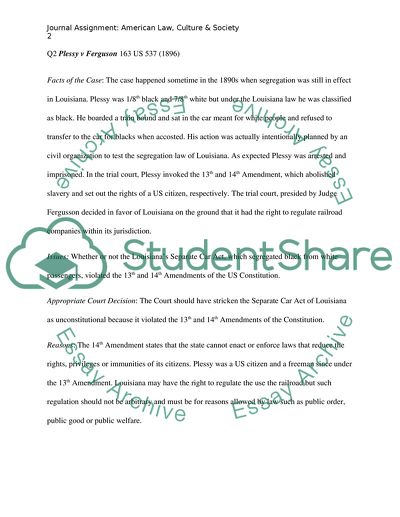Cite this document
(The US Legislation as a Mirror of Culture Assignment, n.d.)
The US Legislation as a Mirror of Culture Assignment. Retrieved from https://studentshare.org/law/1747436-american-law-culture-and-soceity-journal-assignment
The US Legislation as a Mirror of Culture Assignment. Retrieved from https://studentshare.org/law/1747436-american-law-culture-and-soceity-journal-assignment
(The US Legislation As a Mirror of Culture Assignment)
The US Legislation As a Mirror of Culture Assignment. https://studentshare.org/law/1747436-american-law-culture-and-soceity-journal-assignment.
The US Legislation As a Mirror of Culture Assignment. https://studentshare.org/law/1747436-american-law-culture-and-soceity-journal-assignment.
“The US Legislation As a Mirror of Culture Assignment”, n.d. https://studentshare.org/law/1747436-american-law-culture-and-soceity-journal-assignment.


